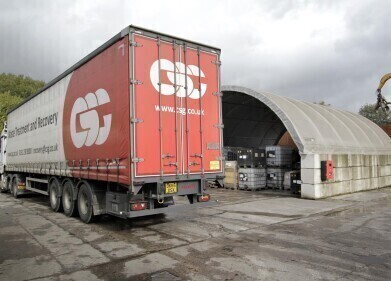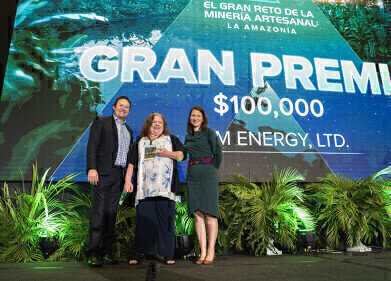Hazardous waste
Sewage sludge containing human waste could be dumped on UK farmland
Sep 08 2020
A LEADING food waste expert has raised concerns over plans that could see Amsterdam dump 30,000 tonnes of sewage sludge containing human waste on farmland in the UK.
The permit for a shipment of 27,500 tonnes of municipal sewage sludge was issued in February by the UK’s Environment Agency, according to a document obtained under the Freedom of Information Act by Greenpeace’s Unearthed investigative unit.
Kevin Quigley, commercial director at food waste recycling and sustainability firm, Warrens Group, said that while it is legal to use treated sewage sludge as fertiliser on farmland in the UK, there are more sustainable alternatives closer to home.
He said: “At Warrens’ anaerobic digestion plant in Newton Aycliffe, County Durham, we produce a valuable biofertilizer which is derived from our food waste treatment process. The resultant AD digestate, which is made up of nitrogen, phosphate and potash, is high in nutrients and readily absorbed by crops.
“We supply land owners within a ten-mile radius of the plant, but we’re keen to talk to other farms and agricultural businesses who might like to learn more about the productions and supply of fertiliser from the plant.
Kevin warned that with any kind of waste there is risk and it must be treated under strict health and safety protocols, but the worry is when those regulations are not adhered to.
He added: “At Warrens, we take our responsibility to the environment very seriously and it’s ironic that spreading the sludge on farmland is banned in the Netherlands, but allowed in the UK. It just doesn’t seem right. The last thing any farm owner needs right now is their farmland to be contaminated and for pathogens to get into the food chain.
“There are a number of safety factors that need to be taken into account with waste because it can contain all sorts of horrible pathogens such as e. Coli and Salmonella.
“For example, when food waste is anaerobically digested, the biogas produced is primarily composed of methane and carbon dioxide, with lesser amounts of hydrogen sulphide, ammonia, and other gases. Each of these gases has safety issues. Overall, biogas risks include explosion, asphyxiation, and hydrogen sulphide poisoning.
“Despite good hygiene being paramount on our site and in the food waste industry in general, the Coronavirus pandemic has taught us all valuable lessons about sustainability.”
Kevin suggests that striking local partnerships might be key to shortening supply chains: “Farmers need to ask themselves whether the fertiliser they use is truly sustainable as they work to lower their carbon footprint. Now is as good a time as any to reach out to neighbouring businesses like ours to find out how we can work together.”
Events
Carrefour des Gestions Locales de L'eau
Jan 22 2025 Rennes, France
Jan 29 2025 Tokyo, Japan
Feb 05 2025 Nantes, France
Feb 16 2025 Kampala, Uganda
Feb 26 2025 Chennai, India










